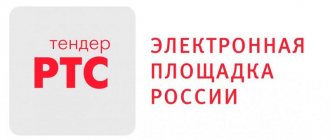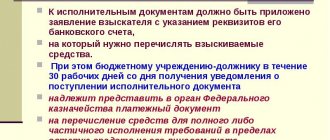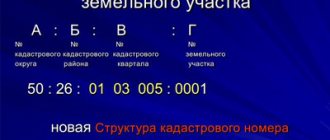How to describe the procurement object under 223-FZ according to the new rules
When describing the subject of purchase in the documentation, you must indicate the following:
- functional characteristics (the ability to perform the main function, achieve results);
- technical and quality properties (parameters, physical quantities, regulations and procedures for performing work, compliance with standard requirements);
- operational parameters (reliability and performance characteristics: strength, durability, etc.);
- safety requirements (compliance with standards, SanPiN);
- packaging method;
- order of shipment;
- results of work or service.
The conditions presented must comply with technical regulations and standardization documents (GOSTs, SanPiNs). If the customer makes other demands, he must justify this in the documentation (Part 10, Article 4).
A restriction has been introduced to use when describing GWS:
- trademarks;
- service marks;
- brand names;
- patents;
- industrial designs;
- name of country of origin.
It is not allowed to establish other unreasonable requirements for GWS that may limit competition:
How to use trademarks when describing products
Under the trademark, as specified in Art. 1477 of the Civil Code of the Russian Federation is understood as a designation that ensures the individualization of goods. The description can be verbal or in the form of a picture.
It is allowed to indicate a trademark in the description of the procurement object, if there is no other way to clearly state the requirements, in the following cases:
- with the words "or equivalent". In this case, it is necessary to specify the equivalence criteria in the documentation. In this case, the supplier may offer a product of a different brand, but one that meets the equivalence criteria. In the application, the participant will indicate the brand and characteristics of his product;
- incompatibility of products of other brands with those available to the customer;
- ordering spare parts and consumables;
- purchasing goods that are necessary to fulfill a government contract;
- in cases where this is provided for by the terms of international treaties.
IMPORTANT!
If the documentation and description of the object indicate a brand and there are no words “or equivalent”, the supplier must supply the goods of the specified brand; delivery of equivalent goods is not allowed.
If the control body determines that the customer has presented requirements that limit competition, the procedure will be cancelled.
Practice: legality of specifying specifications in the description of the procurement object
When can specifications be indicated when describing the procurement object? This review provides conclusions about when the FAS indicates specifications when describing a public procurement object raises questions and when it does not.
Certain manufacturers register technical specifications for specific products, so it is unacceptable to indicate technical specifications in the technical specifications. Based on the general rule, this can be regarded as a condition limiting competition. We analyzed the practice of the antimonopoly authority. This review provides general conclusions regarding when the antimonopoly authorities indicate specifications when describing a public procurement object raises questions.
When exactly can you specify specifications?
Specifications are a type of standard approved by the manufacturer of the product or the performer of the work (service). The standard is applied in accordance with the conditions provided for in contracts and agreements. The procedure in accordance with which the development, approval, modification and application of technical conditions is carried out is established by organizations independently (Law No. 162 of June 29, 2015, Article 21). Sometimes it is necessary to indicate specifications (in such cases they may be contained in the technical specifications), - for example, when purchasing clothing supplies for law enforcement agencies. This is indicated in the letter of the Ministry of Economic Development of Russia No. D28i2274 dated August 19, 2021.
The description of procurement items under the State Defense Order is carried out in accordance with Law No. 275 of December 29, 2012. In accordance with it, the documentation must indicate trademarks or names in the case of an order for the supply of military and special equipment, weapons, as well as military property.
Example one . The practice of the FAS confirms that this is legal. So, when purchasing a car, the customer referred to the equipment and specifications. The Federal Antimonopoly Service of the Russian Federation did not find a violation in this, since the vehicle was accepted for supply to internal affairs bodies (case dated August 25, 2015 No. KGOZ364/15).
What conditions must be observed when using the technical specifications?
If specifications are used when describing the procurement object, the FAS will check whether the technical conditions are publicly available, therefore, when specific specifications of the specifications are indicated in the documentation, they must be published in the Unified Information System. This position is confirmed by two examples, which will be discussed below.
Example two . Documentation for equipping maritime transport with safety equipment had to comply with technical specifications. The requirement was stated as follows: “Box with mounting panel: panel material – stainless steel sheet (AISI 316L); installation accessories: DKS for cable; standards: TU 7022248–2010.” At the FAS meeting, the customer provided an explanation: what is indicated in brackets should be read as “or”. However, this requirement does not make it possible to determine how procurement participants must provide specific indicators. The specifications were not publicly available, so they could only be obtained after a request from the manufacturer. The instructions regarding filling out the first parts of applications were considered inadequate (decision of the Federal Antimonopoly Service of the Russian Federation dated June 22, 2016 No. K - 963/16).
Example three . The customer purchased body armor for employees of units of the Ministry of Internal Affairs of the Russian Federation. The auction documentation contained a requirement that the goods must comply with the specifications. The auction participant decided that it was impossible to manufacture the goods and filed a complaint with the Federal Antimonopoly Service. However, the customer placed the specifications in the Unified Information System, and four participants agreed to deliver the goods on July 3, 2021 based on the requirement. The applicant could not prove the impossibility of manufacturing body armor according to the specifications. The complaint was found unfounded (FAS decision dated April 7, 2016 No. KGOZ145/16).
Equivalent products and specifications
Details of each specification are issued for a specific product from a specific manufacturer. Equivalent products from other manufacturers have their own specifications. The FAS decision in this case is as follows: “in such a case it is impossible to provide equivalent products.”
It is worth noting that penalties for an official who does not indicate the manufacturer of the goods amount to one percent of the NMCC, but not less than 10 and not more than 50 thousand rubles.
The following are examples from the practice of the Federal Antimonopoly Service on public procurement under Laws No. 44 and No. 223.
Example four . The auction documentation for the supply of pipes (steel) contained a reference to the technical conditions of the manufacturer. The FAS Commission found that there are no publicly available technical specifications on the official websites of manufacturers. This fact does not allow government procurement participants to determine a list of technical conditions for which it is possible to provide an equivalent product, which means that it is not possible to offer an analogue (decision of the Federal Antimonopoly Service of the Russian Federation dated January 12, 2021 No. 223FZ19/17).
Example five . The Specifications for the supply of gloves (surgical) established a requirement that the product comply with Specifications 9800254850002011. At the same time, equivalent products from other manufacturers had other specifications. The antimonopoly service recognized the customer's actions as contrary to Law No. 44 (Article 31, part 1, paragraph 1) (Resolution of the Komi OFAS RF dated November 23, 2021 No. 04–05/1103).
When, in addition to GOST, TU is also used
When describing the item of purchase, customers indicate GOST. Many additionally refer to the technical specifications. Below we will consider examples in which cases this is possible from the point of view of the FAS.
Example six . The Antimonopoly Service, having studied the documentation of the auction for the supply of fruit juice (OKPD Code 2 - 10.32.19.111), found out the following requirements for the product established by the customer: Compliance with GOST: TU 63027-180084852003. With pulp. In assortment. The color, smell, taste correspond to the vegetables and fruits from which the product is made.
The FAS opinion is as follows: it is not possible to establish what qualitative, technical or functional characteristics a product must meet. The customer did not establish requirements that the product must comply with a specific GOST, but contained a requirement for mandatory compliance with TU 63027-180084852003. Thus, by indicating a specific manufacturer, the customer limited the number of procurement participants (decision of the Federal Antimonopoly Service of the Russian Federation dated November 29, 2021 No. 03–10.2/192–2016/7.30).
Example seven . A participant in the purchase of food products filed a complaint with the FAS. One of the customer’s requirements was the following: “Buckwheat porridge with beef.” The product must comply with the manufacturer's specifications or GOST R 333–2012. Country of manufacture: Russian Federation. Consistency and appearance: heated buckwheat porridge, crumbly, boiled, with finely chopped meat, without lumps. Smell and taste: typical of buckwheat porridge with beef, fat content - no more than 22 percent. The mass fraction of protein is not less than 6 percent. The presence of soy protein is not allowed. The share of table salt (sodium chloride) is no more than 1.4 percent (deviations should not be more than 0.2 percent). Foreign impurities are not allowed." At the commission meeting, the customer provided explanations that the requirements met his needs. The FAS RF did not reveal any violations of the rules of the contract system (case dated February 4, 2015 No. KGOZ26/15).
Why is it important to comply with the rules for describing a public procurement object?
The customer does not always have to be guided by technical regulations, standards and GOST. There are times when they simply are not there. Sometimes it is necessary to purchase a product that has certain quality characteristics. If, when describing the procurement object, you use specifications, justify why GOST is not used. We must remember that when using the manufacturer's specifications, you do not indicate the manufacturer, and such practice is prohibited by Law No. 44 (Article 33 Part 1, Article 1). On the part of regulatory authorities, this may be regarded as a restriction of competition.
Tags : Purchasing, TU.,
06 July 2017
Number of views: 14981
Please rate how useful this material was.
Rating: 4.3/5 — 6 votes
Similar articles:
- Regulations have been approved for checking delivered goods using both video and photographic equipment for compliance with information under the contract (439)
- FAS RF: when conducting a repeat procurement in the field of construction, the participant will only need to submit “consent” to participate (403)
- Courts: when supplying improved goods under a government contract, there may not be an additional agreement (386)
Comments ()
Write a comment
How to draw up technical specifications
Technical specifications 223-FZ defines it as one of the parts of the procurement documentation. It contains the basic requirements for purchased GWS. The description must be objective, understandable, and consistent. Technologically and functionally unrelated goods, licensed and unlicensed services should not be included in one purchase (Article 17 of Law No. 135-FZ of July 26, 2006).
A sample technical specification for 223-FZ must contain the following information:
- characteristics of GWS, their results: range of product characteristics, if necessary, you can provide images, drawings, sketches;
- volume of goods, services or works;
- container, packaging;
- delivery dates and work schedule;
- the need for installation and adjustment;
- guarantee period;
- link to the documents used on standardization and technical regulation.
Who should work under 223-FZ
Business entities that apply Law 223-FZ in their work are:
- state corporations, state companies, natural monopolies, as well as organizations in which the state share is more than 50%;
- subsidiaries (“subsidiaries”) of such organizations, as well as subsidiaries of these “subsidiaries”;
- budgetary institutions, if their purchases are made at the expense of grants or funds that they earned independently, as well as in the case when they themselves are executors under the contract and attract other persons to perform it.







